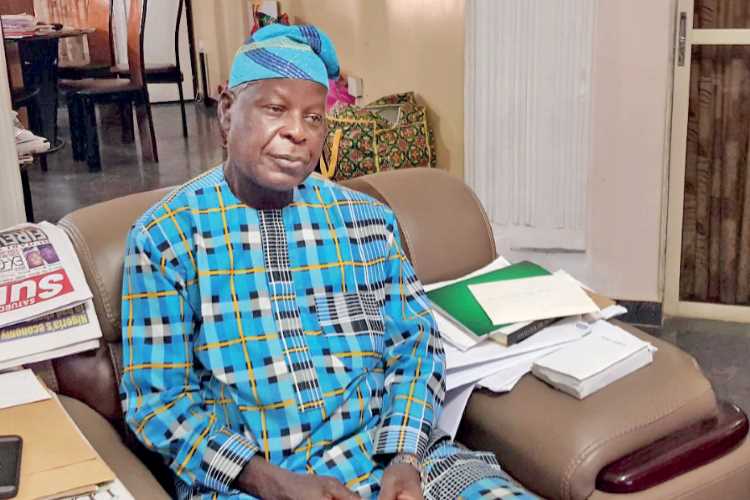Former Inspector General of Police Mike Okiro has withdrawn from the race for President-General of Ohanaeze Ndigbo, following a controversial court injunction that questioned his state of origin. The announcement came during a press briefing in Enugu on Thursday, just hours before the scheduled January 10, 2025 election.
The respected former police chief’s withdrawal stems from an Enugu State High Court order barring his participation, based on claims challenging his Rivers State origin. The court’s decision followed allegations that Okiro hails from Imo State, rather than Rivers State, where the position has been zoned according to the organization’s rotational principle.
Adding to the controversy, the Indigenous People of Biafra (IPOB) had earlier expressed opposition to Okiro’s candidacy, citing similar concerns about his state of origin. The convergence of legal challenges and regional opposition ultimately led to his decision to respect the court’s directive, despite his strong objections to the ruling’s basis.
During his press conference, Okiro presented extensive documentation supporting his Rivers State heritage, including his National Population Commission Attestation of Birth and confirmation from the Traditional Ruler of Egbema. He also referenced his published works, including his book “Nigeria: The Restructuring Controversy,” and his historical involvement in Rivers State student associations during his university years at Ibadan.
Okiro expressed particular concern about the court’s procedural approach, noting that the interim order was issued without giving him an opportunity to present his case. It is unfortunate that the court did not invite me or hear from me before giving that obnoxious order which I got from the media,” he stated, highlighting potential procedural irregularities in the court’s decision.
Despite his strong disagreement with the court’s ruling, Okiro emphasized his commitment to upholding legal institutions and democratic principles. He has instructed his legal team, Chambers of Eze Okafor & Co, to pursue the matter through appropriate legal channels, seeking to address what he views as an infringement of his fundamental rights under the 1999 Constitution.
The former police chief’s withdrawal has garnered significant attention from various stakeholders across the Igbo-speaking regions. His campaign had received notable support from Rivers State Governor Siminialayi Fubara, and he maintained substantial backing from the Igbo-speaking communities in Rivers State, as well as supporters across Imo, Abia, Ebonyi, Enugu, Anambra, and Delta states.
The situation highlights the complex interplay of regional politics and identity within the Ohanaeze Ndigbo organization, which serves as the primary socio-cultural group representing Igbo interests worldwide. The controversy surrounding Okiro’s candidacy underscores the importance of clear guidelines regarding eligibility and zoning arrangements in the organization’s leadership selection process.
Looking forward, Okiro called for unity and peaceful coexistence among all Igbo people, emphasizing that the current challenges should not undermine the fundamental objectives of Ohanaeze Ndigbo. He expressed confidence that justice would eventually prevail through proper legal channels, while urging his supporters to maintain their commitment to the organization’s ideals of unity and progress.
The development raises important questions about the verification processes for candidates’ credentials in such significant cultural leadership positions and the role of judicial intervention in organizational affairs. As the situation continues to unfold, the outcome may have lasting implications for future leadership transitions within Ohanaeze Ndigbo and similar cultural organizations across Nigeria.



